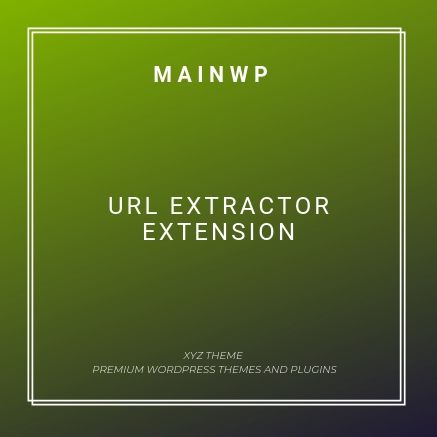
- URL EXTRACTOR EXTENSION CHROME INSTALL
- URL EXTRACTOR EXTENSION CHROME FULL
- URL EXTRACTOR EXTENSION CHROME CODE
For example to filter for links that do not come from an anchor tag, input the following:Īs another example to filter for links that do not contain a match for the regular expression githubcom, you would input: To do this simply prepend the 'not:' modifier in front of the filtering argument.

In addition to filtering for all of the criteria listed above, you can alos filter for links that don't match a given critera.
Therefore if you wanted to filter for links with content type of image you could do:īut if you only wanted png images you could write out the full content type instead: Similarly filter by content_type will filter for any links that contain the value you supply, so again you don't have to write out the full content type. Please note that to filter by host uses a regular expression to match your input to the links' host, so you do not have to write out the full host.
status_ok (Whether or not the status code is indicative of a succes or an error). The following are all of the modifieres you can use to filter: For example to filter for links that are not visible and had a successful status code in combination with a regular expression you could do: To use a combination of these filtering arguments simply seperate the arguments with a space. For example if I wanted to filter for links coming from an anchor tag, I would type: Simply write the modifier of the metadata attribute you want to filter by, followed by a comma and the value you want. Each metadata attribute has it's own modifier which are listed below. Regexp:^ To filter links by one of (or a combination of) their metadata attributes, you can use a similar format. If however you want to filter in combination with other parameters, you will have to use the regexp modifier, like so: Link Diver will then only display to you links that contain that regular expression somewhere in the link and will highlight the matches in red for each link. If you are only interested in filtering by a regular expression, simply write your expression into the textbox at the top of the page and press enter. Link Diver will also filter links for you based on a regular expression you provide or by some of the metadata mentioned earlier. If a link has not received a response yet it will simply not display a status code or content type.īy default you need to click on the fetch links button to start the fetching process, but if you would like this process to hasppen automatically when you open the extension, you can toggle that setting in the additional settings menu which can be accessed by clicking the three dots below the filter button. Because of this the status code and content type attributes may take a while to appear for every link. Please note that to not overburden the network, these results will come in in batches. On top of displaying each link to you, the Link Diver will send http get requests and display the status code and content type of the response for each link that it collects. Status Code (The status code of the http response). Content Type (The content type of the http response of the request sent to that link). For example, 'A' for a typical link, 'IMG' for an image, etc.) Tag Source (The type of tag that the link was found under. Visible (Whether or not the link is visible on the original page). Host (The host of the web page being linked). 
The following are metadata that will appear upon expanding a link: You can also expand and collapse each link at once with the 'Expand All' and 'Collapse All' buttons. To expand a link click on the triangle to the left of the link, or on any other part of the link's box that is not the link itself.

In addition to viewing all of the links available on a page, you can expand each link to see associated metadata about that particular link. With the extension now open you can view metadata for each link, filter the links by a variety of options, group the links by various metadata attributes, sort the links, and highlight links that you would like to investigate more thoroughly on the original web page. A tab will open in a new window with a list of all of the links on the page you were previously on. Once you have installed the extension onto chrome you are ready to start diving into web pages! Once on a page that you would link to explore, click on the extension icon in the top right corner of Chrome, or right click anywhere on the page and select the link diver context menu item.
Select the angular-link-diver directory inside of the dist directory as the directory you would like to unpack. Click on Load Unpacked in the top left corner. Turn on Develepor Mode in the top right corner. On Chrome, type chrome://extensiones in the omnibox to get to the extensions page.
There will be a new directory under dist which can be used to install the extension to chrome.







 0 kommentar(er)
0 kommentar(er)
